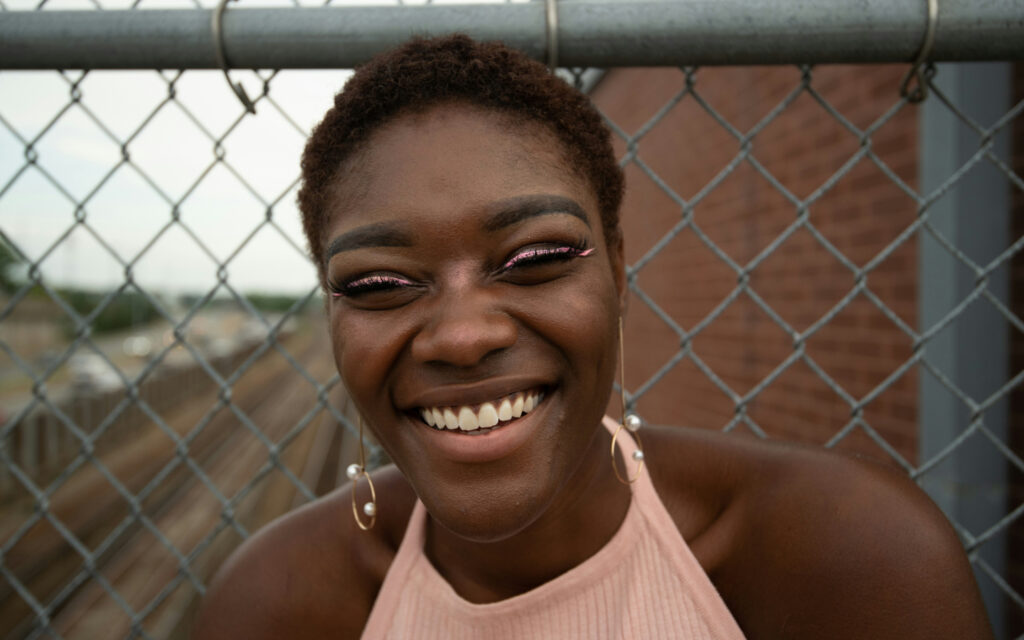At last month’s Google Marketing Live, Vidhya Srinivisan (Google’s Vice President and General Manager of Ads and Commerce) walked the audience through a live demo of how ads will be integrated with Google’s AI Overviews. In the example, a consumer searching “how to bring small dogs on flights” was presented with Sponsored Product Listing Ads for airline-friendly dog carriers underneath the AI Overview. The demo perfectly highlighted Google’s revolutionary pivot from query-based matching to predictive matching. Later in the conference, Sylvanus Bent (Google’s Group Product Manager of Ads) debuted AI Max – the latest campaign type from Google Ads. Bent highlighted “keywordless search” and emphasized that intent signals, rather than strict query matching, will power upgraded campaigns.
The explosion of AI and the subsequent disruption in media spaces is undeniable. The search engine results page (SERP) is embarking on an irreversible change in which highly personalized overviews are generated for users searching on Google, superseding organic domains and paid text ads on the SERP. Users are becoming more familiar with conversational AI through Google’s shape-shifting (along with the increased usage of tools like ChatGPT, Claude, etc., among the general population), which is changing their search behavior. Queries in Google’s AI Mode are two to three times longer than traditional searches, as they now begin more open-ended as prompts rather than singular keywords. Much is made about zero-click searches and AI’s threat to Google, as detailed in recent articles from the Wall Street Journal and Fortune. There has been distressed chatter about the future of search engines and their paid advertising. The uncertainty has made for good clickbait headlines from prominent publications like WIRED and Vox. Still, even if those articles mostly come to a measured conclusion, I have encountered legitimate skepticism first-hand from marketers who believe that Google (and by proxy, Google Ads) will become a thing of the past as AI completes its full-scale takeover. The root of this doomsday idea is that the robust, personalized experience that AI applications can offer will make search engines obsolete, viewing it all as a zero-sum game.
While the search engine experience might be unrecognizable in 5 years (AI Mode could very well replace the SERP entirely), I do not believe that Google will become a dinosaur amidst the sea of change. Despite the ubiquity of AI Overviews (which now boasts 1.5 million users) and concerns over zero-click searches, Google generated $66.9 billion in revenue from Google Ads in Q1 2025, which made up over half of Alphabet’s total revenue and was an 8.5% increase from 2024. The idea that Google would be on their heels about AI, rather than carefully preparing for how to monetize it, is naive. This year’s content in Google Marketing Live demonstrates that the company embraces AI and confidently maps a resilient path forward. The introduction of the AI Max campaign type is reassurance from Google that while old-school, keyword-based targeting might become archaic, Google Ads most certainly will not. The predictive matching that replaces query-matching will be vastly more intelligent. Even the frequency of searches appears to be increasing with this technology. Google observes that users who engage with AI Overviews conduct 10% more searches on average than users who haven’t yet been exposed to AI Overviews. So while zero-click searches are on the rise, early indications point to AI Overviews inducing more overall engagement with Google. Consumers might very well begin using Google as a research-oriented and conversational tool in addition to traditional keyword-based discovery.
AI Max is a clear sign that Google has already begun adopting this technology change to ensure it is mutually beneficial for consumers, advertisers, and itself. Ads have infiltrated most traditional and digital media spaces. To think that AI will be an exception is short-sighted. There will undoubtedly be a sustained rise in zero-click searches as consumers won’t always need to click through to a website. However, when users need a product or service, AI will be used as a tool in that consumer journey and cannot replace that product or service – users still need to reach a point of purchase. The “how to bring small dogs on flights” example shows that even for users not yet looking for a brand or product, the nature of those longer-tail searches supplies Google with the intent signals to infer commercial intent and serve relevant ads even higher in the funnel. Therefore, it will be crucial for most advertisers to adapt their strategy to this shift in consumer behavior instead of treating AI like an outsider, which will make search engine marketing obsolete.
Standards of advertising intrusion have been set in traditional media, and those same thresholds will be established in AI Overviews in Google. Some applications like ChatGPT and Google’s Gemini assistant might remain immune to ad disruption by prioritizing a subscription-based model. Still, Google Search is much too ingrained in its advertising model. History shows that on Google itself, Facebook, Snapchat, and a whole slew of other platforms and applications, users are willing, time and time again, to trade off the inclusion of ads in their experience for free usage of the service. Of course, that trade-off also comes with selling user data to advertisers, but convenience and cost routinely trump any data privacy concerns from the user base. Selling ad space adjacent to AI Overviews in Google is a natural evolution. Still, it will certainly make for interesting debates if the lines start to blur between what’s an organic recommendation from an AI model vs. a paid advertisement (especially in an “assistant” environment like Gemini rather than the SERP).
Those boldly predicting the demise of Google Ads are underestimating Google’s foresight into its profitable future. Meanwhile, marketers who align themselves with the changes in Google Ads and embrace the AI features will be rewarded for their agility. Advertisers and brands must become more comfortable giving up control and trusting the automation. Early demonstrations of AI Max show a near-complete capitulation of ad copy creation and query matching – Google will simply reference brand websites to determine what auctions to serve in and generate dynamic ad copy combinations depending on the query. Strict compliance concerns from clients will likely be a roadblock to performance success, and marketers who insist on manual control out of comfort will likely be delaying the inevitable. Google’s AI Max is the next evolution of paid search, not the final chapter, and advertisers would be smart to fall in line behind Google as they sit in the driver’s seat and will help dictate what the new landscape will look like.




